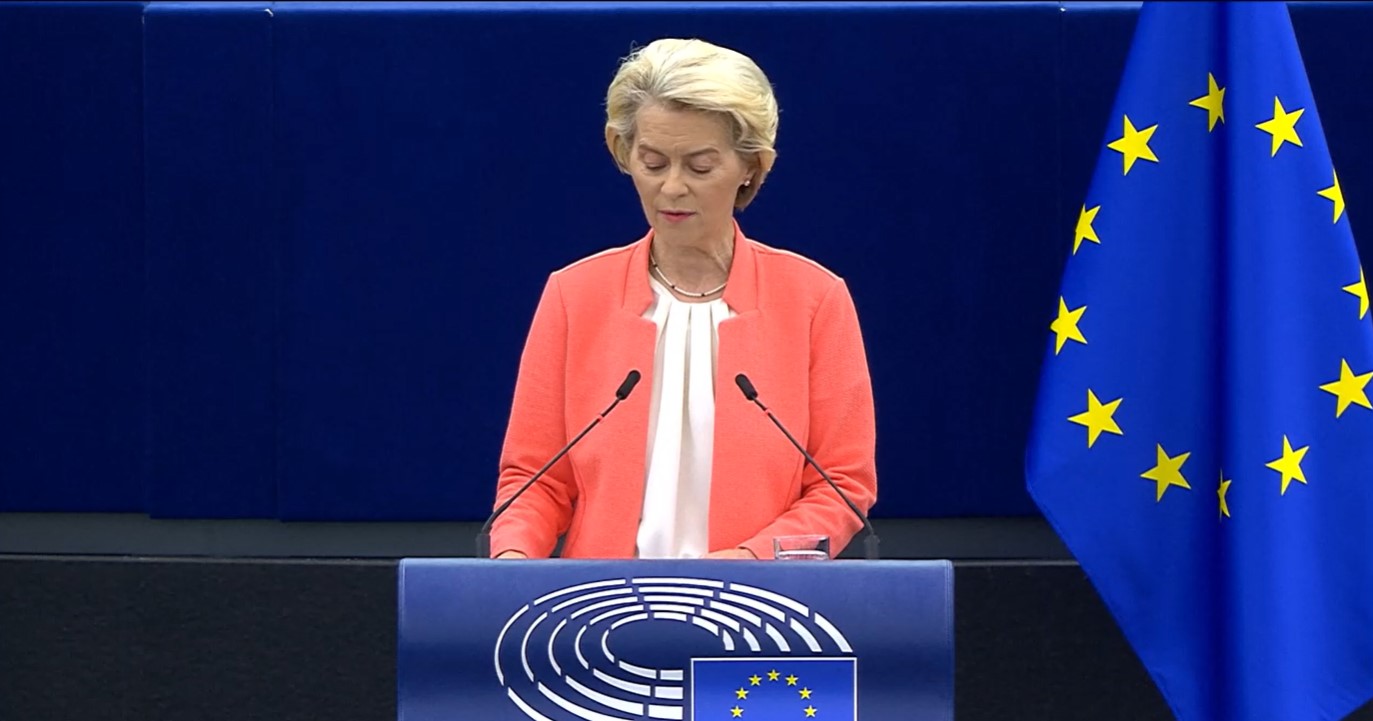
On 13 September 2023, the President of the European Commission, Ursula Von der Leyen addressed the European Parliament and all citizens in the EU with its annual State of the Union speech.
In this annual message, President Von der Leyen underlined the progress achieved with regard to the European Green Deal and the digital transition, promised to make business easier in Europe and to keep the EU’s competitive edge “whatever it takes”, prioritized actions to ensure AI develops in a human-centric, transparent and responsible way, outlined at length the EU geopolitical role and its challenges, committed to further enlargement and called for admitting Bulgaria and Romania to the Schengen area.
Citizen-centric EU
As a citizen-centric not-for-profit association with a mission of empowering citizens in order to create a more inclusive and stronger European Union, we, at the European Citizen Action Service (ECAS), could not help noticing that in her speech the word “citizen” was mentioned only once, in the context of Europe becoming the global pioneer of citizen’s rights in the digital world.
Although President von der Leyen supports the idea of a “union complete with young people who can live, study and work in freedom”, ECAS regrets that there has been no concrete mention of EU citizens’ rights, particularly freedom of movement and related rights and the challenges associated with it post-COVID. Moreover, no reference was made to electoral rights despite the upcoming EU elections, nor to the implementation of the European Pillar of Social Rights.
While we agree that competitiveness must be pursued to maintain Europe at the forefront of innovation and not lose ground to other, often less regulated markets, we remind President von der Leyen that Europe should first and foremost aim at the well-being of its citizens and that we must pay close attention to the methods used to preserve this competitiveness if we wish to continue promoting the values of freedom, security and justice for all, as well as solidarity and protection of human rights.
Moreover, neither a citizen-centric, nor a competitive and business-friendly Europe can be achieved without access to information and advice on how both citizens and businesses can exercise their EU rights. In this context, ECAS is deeply concerned about the consequences of the recent decision of the European Commission to discontinue Your Europe Advice service to citizens, thus leaving approximately 25,000 EU citizens and businesses annually without access to free legal advice regarding their rights.
Ensuring “Vibrant Democracies”
ECAS believes that 300 days before the European elections, it is not sufficient to only mention them, but it is essential to envisage concrete actions in order to raise awareness and mobilise Europeans, while ensuring a safe and healthy democratic environment for this important vote. Although President Von der Leyen recognised as “serious challenges” the risks related to disinformation, the spread of harmful contents and data privacy, ECAS regrets the lack of focus on the effect of these challenges on citizens and the democratic debate. No specific upcoming campaigns or initiatives were announced in that respect, which is a missed opportunity considering the wide-reaching negative consequences of disinformation to public safety, democracy and the rule of law. In view of the European elections, it is more important than ever to increase citizens’ resilience to disinformation narratives. Moreover, while elections are a vital component of representative democracy, a holistic view of democracy should be aspired for in the Union, encompassing ongoing civic engagement through political innovation, and providing opportunities for citizens to have a meaningful impact beyond the ballot box.
In this context, while ECAS welcomes the reference to creating a safer digital space where fundamental rights are protected, ECAS regrets that President Von der Leyen’s speech regarding digital transformation did not refer at all to digital democracy and digital inclusion. These aspects of digital transformation are essential to build and maintain citizens’ trust in democracy and digital democracy methods, such as crowdsourcing legislation with citizens, have the potential to reduce the gap between political representatives and citizens as well as contribute to the creation of engaged citizenship.
Diversity, Equity, Inclusion and Accessibility
Last but not least, while we recognise the progress achieved in gender equality in recent years, much more still needs to be done to ensure equity, inclusion and accessibility in the EU.
Although in the von der Leyen’s speech regarding the European Green Deal and Europe’s responses to climate change, the focus was once again on supporting industries through the green transition, ECAS appreciates the reference to the EU’s “strive for a fair and just transition”, leaving no one behind. ECAS believes that democratic participation and inclusion of those EU citizens who will be most affected by the transition and are in vulnerable positions are of key importance to ensure a real just transition process.
As we approach the European Parliament elections 2024, we welcome President von der Leyen’s “solemn promise to leave no one behind”. However, we regret to notice the absence of marginalised and underrepresented groups in the envisioned actions for 2024, especially in view of the upcoming elections, which must include all EU citizens, particularly those in vulnerable situations. The voting rights of people with disabilities, among other groups, are not ensured in the upcoming European elections, undermining their representativeness in the election.
ECAS commends the addition of International Sign Language interpretation for the first time this year as a commendable step in the right direction towards accessibility and an example that should be followed at all levels of the EU Institutions and across Member States.